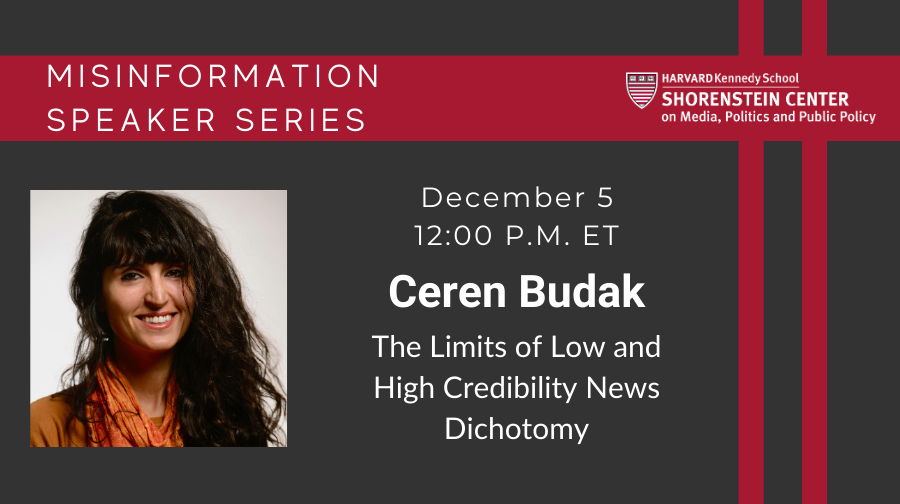Event
The Limits of Low and High Credibility News Dichotomy
Belfer Building - B-200 Starr Auditorium & Zoom
12:00 PM

Event
Belfer Building - B-200 Starr Auditorium & Zoom
12:00 PM
